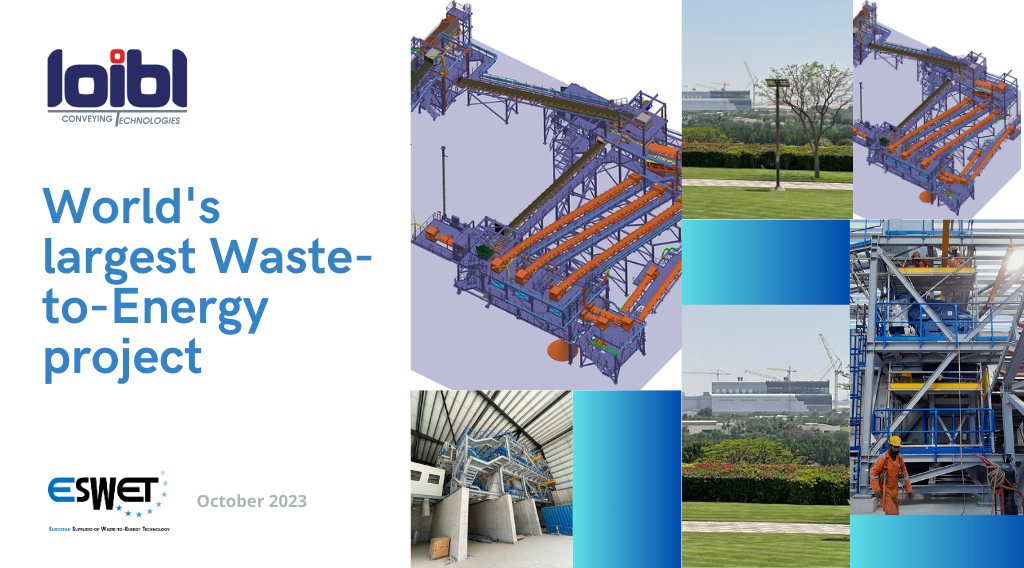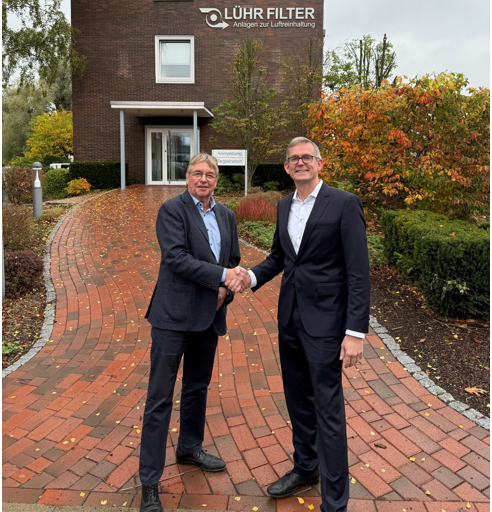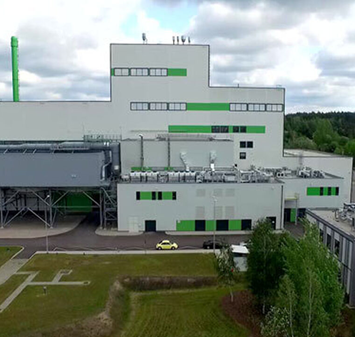Dubai’s historic Waste-to-Energy project: LOIBL plays a pivotal role
In a significant leap towards a sustainable future Loibl Förderanlagen GmbH, has been a cornerstone in the realisation of Dubai's WtE vision.

The new Dubai Waste Management Centre (DMWC) is one of the largest Waste-to-Energy plants in the world and represents a significant step towards the implementation of the Dubai clean energy strategy, which aims to achieve a clean energy infrastructure for the country by 2050.
For the project, LOIBL supplied a turnkey slag processing plant including control system and software, which operates completely self-sufficiently and is based on the latest technological standards.
Key Milestones:
- Project duration: spanning from November 2020 to July 2023.
- Project scale: the Dubai Waste Management Centre (DMWC) takes on an astonishing 1,900,000 tons of waste annually, surpassing the capacity of any other Waste-to-Energy plant in the world.
- Clean energy generation: through incineration, the waste contributes to the production of a remarkable 200 MW of electricity, illuminating approximately 135,000 households, constituting about 2% of the city’s total energy consumption.
- Peak efficiency: With a processing rate of 110 tons per hour, the facility adeptly segregates slag from non-recyclable waste, concurrently recovering valuable ferrous and non-ferrous metals.
The DMWC stands as a prime example of how cutting-edge technology can chart the course towards a cleaner and more environmentally friendly future.
Other members news

MARTIN GmbH expands through LUEHR FILTER GmbH acquisition
28.10.2025ESWET member MARTIN GmbH has acquired LUEHR FILTER GmbH, another ESWET member. A third-generation, family-run company, LUEHR FILTER provides gas…

ESWET members to modernise French Waste-to-Energy plant
20.10.2025ESWET members MARTIN GmbH and PAPREC are joining forces in the construction of two new lines at the Prairie des…

A Polish plant’s success story
13.10.2025In just ten years, the Waste-to-Energy plant in Bialystok has reduced local dependency from landfills from 90% to 12%. After…